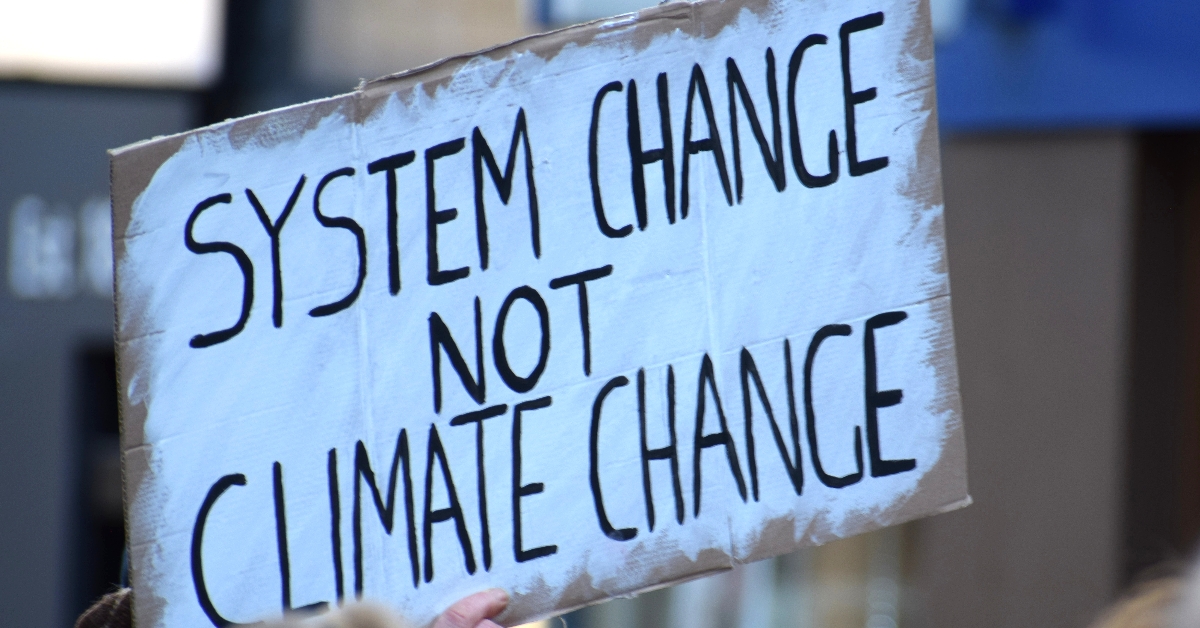
COP28 special: climate adaptation and operations/estate
30 November 2023
Our education institutions touch on every aspect of our work and study experience and they play - or should play - an outsized role in climate adaptation. Many of our further and higher education institutions have a physical infrastructure - buildings, hardware, accommodation, energy, catering, transport. Likewise, our remote working institutions/education providers naturally have an impact on the climate and environment too, and our policies and practices related to ways of working can also contribute to staff and student wellbeing. It is our employers' responsibility to ensure that appropriate adaptations are made to estates and operations in order to reduce emissions and environmental impact, to stay within planetary boundaries, while also ensuring the health and safety of everyone using its estate and helping to protect us all from the effects of climate change: flooding, extreme heat, extreme cold, and so on.
Heating and cooling buildings
Energy saving on campuses and switching to renewable energy sources is a relatively easy way that estates teams can and should implement climate adaptation. It is a popular step for institutions to take as it forms the majority of Scope 1 and 2 emissions, which can be measured, tracked and controlled locally, while reducing long-term energy costs.
Business travel
Business travel falls within scope 3 emissions, which are much harder to monitor and reduce, given how they accrue from sources outside of the institution's control. However, there are ways that institutions can do more. Taking flying as one example, recent studies have indicated that it is a minority of 'high-ranking' university academics who are responsible for the vast majority of air travel emissions in education institutions. While it is often claimed that this is necessary for academics to develop their careers, the research in fact suggests air travel does not affect professional success. Instituting monitoring and guidance around business travel (see the Stay Grounded report, 2019), and encouragement of online attendance where possible, would therefore be a good way for institutions to begin to tackle one of the largest sources of Scope 3 emissions. There is also opportunity to reduce travel to campus where not necessary, giving staff flexible working options if their home setup allows, can enable reduced work related travel when it comes to commuting to an office or campus.
Food
Tackling emissions and environmental degradation from food, waste, packaging and poor land use is an area eminently adaptable and popular with students. The student-led Planet Based Universities initiative is gaining ground at a number of institutions, aiming to reduce meat-based emissions from food sold on campus as well as supporting animal welfare. How food is grown is also important to ensure that the land replenishes its nutrients and can be managed in a nature-friendly way. UK universities own over 52,000 hectares of land and have the power to incorporate land use stipulations into their agreement with those working on or renting the land. Food waste management is another area for potential, as currently 8% of emissions are emitted from the production of food that is never eaten, but if managed well can add to institutional efficiency by wasting fewer resources on campus. Tied to this, the overuse of plastic packaging and disposable cups continues to gall students and staff alike, when solutions are simple - offering fresher produce, less ultra processed food, and encouraging reusable cups with discount schemes or branded reusable alternatives. Not only are these solutions good for the health of the environment, they're good for our health too.
It is within the power of unions to push for these changes, which are visible and popular with the whole university community, and to strengthen our case that these policies are compatible with maintaining institutions' bottom line - let's face it, the core concern of all management teams. But in doing so, we will each be contributing to climate adaptation for the long term. So if COP28 is, like its predecessors COP26 and COP27, ultimately disappointing, let's focus on the things we have the power to change.
For more information on the solutions discussed here, and valuable resources to help achieve them, see the University of Liverpool's Green New Deal claims for energy and carbon management and food and land use.
Resources
- Farming for carbon and nature scoping research (2020): Students Organising for Sustainability (SOS-UK), research to better understand the extent to which universities and colleges own and have influence over land and land use.
- UCU Green New Deal quick guide to energy and carbon management
- UCU Green New Deal quick guide to food and land use
- Follow Mock COP and their activities at COP28: https://twitter.com/Mock_COP and mockcop.org
- Follow the Office for Climate Education's activities during COP28.
Events
- COP28 kicks off in the UAE on Friday 1 December, see what's on the schedule.
- PrintPrint this page
- Share

